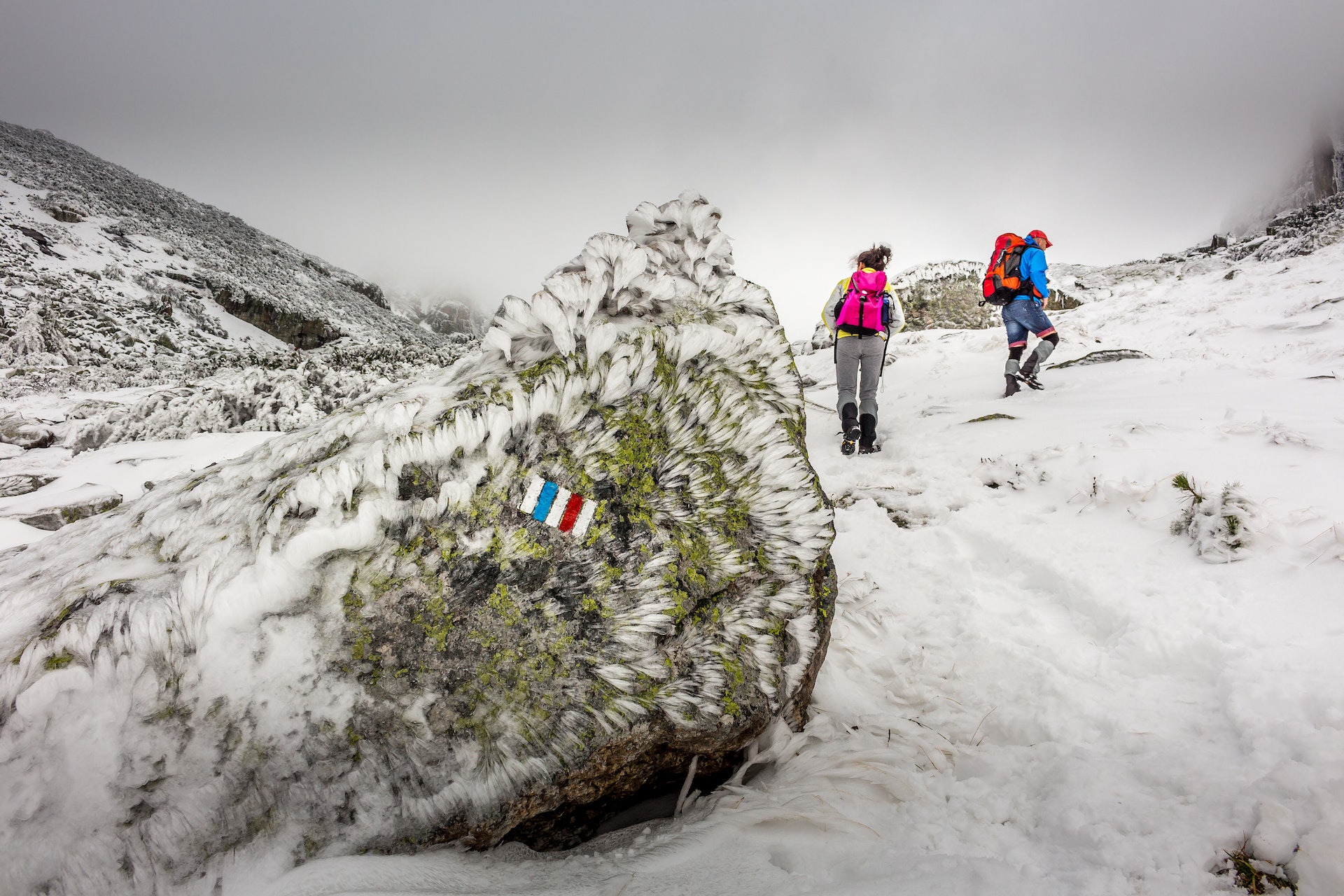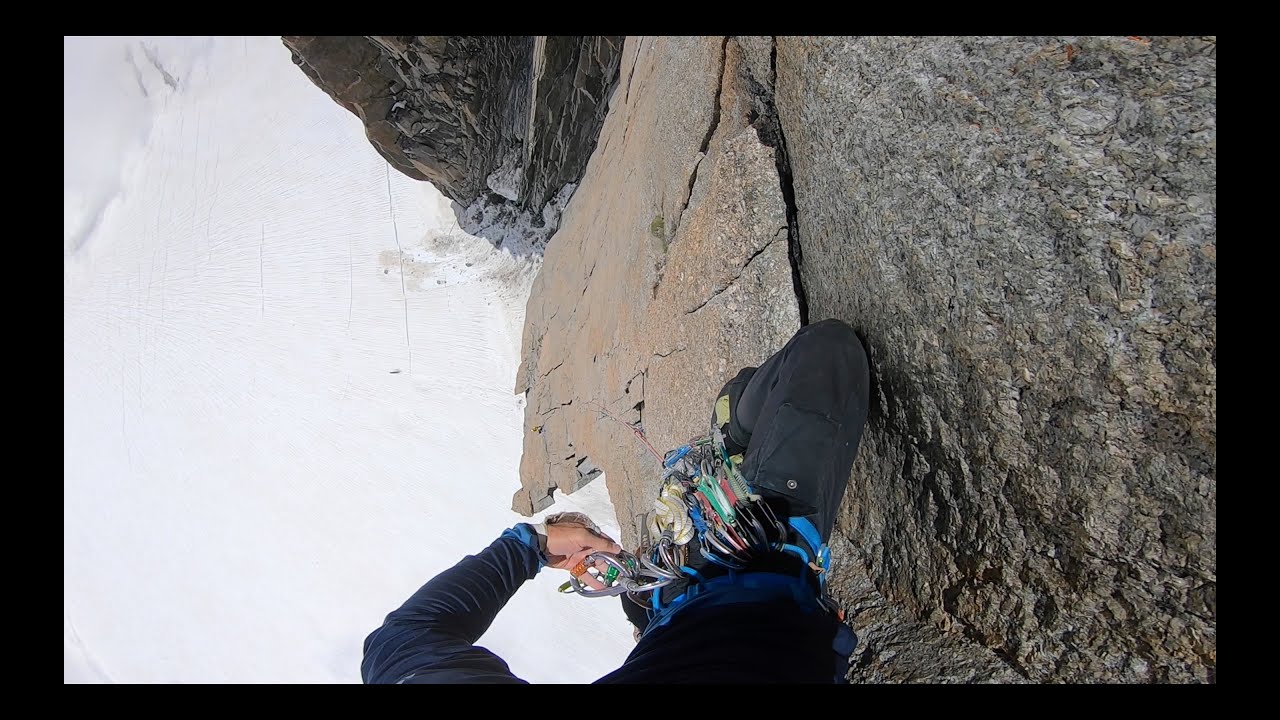Mountain Climbing In The Alps - Scaling The Peaks
Mountain climbing in the Alps is an exhilarating and challenging experience that draws adventure seekers from all over the world. With stunning views and diverse terrain, the Alps offer a range of opportunities for climbers of all skill levels.
Author:Tyreece BauerReviewer:Tobey StricklandJun 20, 202352.2K Shares791.3K Views

Mountain climbing in the Alpsis an exhilarating and challenging experience that draws adventure seekers from all over the world. With stunning views and diverse terrain, the Alps offer a range of opportunities for climbers of all skill levels.
Whether you're a seasoned mountaineer or a beginner looking to take on a new challenge, the Alps are sure to provide an unforgettable climbing experience.
From the snow-capped peaks of Mont Blanc to the rugged cliffs of the Dolomites, the Alps offer a wealth of climbing opportunities that are sure to leave you breathless.
Planning Your Mountain Climbing In The Alps
Alpine climbing in the Alps can be a thrilling and rewarding experience for both beginner and experienced climbers. However, it requires careful planning and preparation. Here are some essential tips for planning your alpine climbing trip:
Choose The Right Time
The best time to climb the Alps is from mid-June to mid-September when the weather is mild and the days are longer.
Choose The Right Route
There are several routes to choose from in the Alps, ranging from easy to difficult. Make sure you choose a route that matches your skill level.
Get In Shape
Climbing in the Alps requires a high level of physical fitness. It is essential to start training several months before your trip.
Acclimate To The Altitude
The Alps are high, and the altitude can cause altitude sickness. Make sure you give yourself enough time to acclimate to the altitude before starting your climb.
Check The Weather
The weather in the Alps can change quickly, and it is crucial to stay informed about the weather conditions during your climb.

Alpine Climbing Alps 2020
Top Alpine Climbing Routes And Peaks
- Mont Blanc- The highest peak in the Alps, Mont Blanc is a challenging climb with an elevation of 4,810 meters. Climbers can choose from various routes, including the Gouter Route, which is the most popular.
- Matterhorn- Located on the Swiss-Italian border, Matterhorn is one of the most iconic peaks in the Alps. It is a challenging climb with a height of 4,478 meters, and climbers can choose from several routes.
- Eiger- The Eiger is a peak in the Bernese Alps of Switzerland. The mountain has three faces, and the north face is particularly challenging. Climbers can take the classic route, which was first climbed in 1938.
- Aiguille du Midi- Located in the Mont Blanc massif, the Aiguille du Midi is a popular destination for climbers. The climb to the summit is not too technical, but climbers need to be in good physical condition.
- Grandes Jorasses- The Grandes Jorasses is a mountain in the Mont Blanc massif on the French-Italian border. The mountain has several routes, including the Walker Spur, which is one of the most challenging.
- Dent Blanche - The Dent Blanche is a peak in the Pennine Alps and is known for its distinctive white rock face. The peak has several routes, including the South Ridge, which is the most popular.
- Grand Combin- Located in the western Pennine Alps, Grand Combin is a massive mountain that has several peaks. The mountain has several routes, including the normal route, which is the most popular.
- Weisshorn- The Weisshorn is a peak in the Pennine Alps and is known for its distinctive shape. The peak has several routes, including the classic north ridge, which is a challenging climb.
- Jungfrau- The Jungfrau is a peak in the Bernese Alps and is a popular destination for climbers. The mountain has several routes, including the Rottalsattel Ridge, which is one of the most challenging.
- Piz Bernina- The Piz Bernina is the highest peak in the Eastern Alps and is located on the Swiss-Italian border. The mountain has several routes, including the Biancograt Ridge, which is a classic climb.
Alpine Climbing Safety Tips
Alpine climbing is an exciting but challenging activity that requires proper safety precautions. Here are some safety tips for mountain climbing in the Alps:
- Know your limits- Be honest with yourself about your fitness level and experience. Choose a route that matches your skills and abilities.
- Get proper training- Take a course on alpine climbing techniques, rope handling, and rescue skills.
- Check the weather- Check the weather forecast before you start your climb. Be prepared for sudden changes in weather conditions.
- Use proper gear- Wear a helmet, harness, proper boots, and crampons. Bring a first-aid kit, extra clothing, and enough food and water.
- Follow the route- Stick to the marked trail and avoid shortcuts. Don't try to blaze your own trail, especially in unfamiliar terrain.
- Rope up- Use a rope when climbing on steep or exposed terrain. Make sure to use proper belay techniques and anchor points.
- Communicate- Stay in contact with your climbing partner(s) and let someone know your planned route and expected return time.
By following these safety tips, you can reduce the risk of accidents and enjoy a safe and successful alpine climbing trip in the Alps.
Cultural And Natural Attractions Of The Alps
The Alps are not only famous for their stunning mountain peaks and exhilarating outdoor activities, but also for their rich cultural and natural heritage. Here are some of the top attractions that you should not miss when visiting the Alps:
Matterhorn
This iconic mountain peak on the border between Switzerland and Italy is one of the most recognizable landmarks in the world.
Climbing to the summit is a challenging and rewarding experience, but you can also enjoy its beauty from afar by taking a cable car or hiking in the surrounding valleys.
Aletsch Glacier
This massive glacier in Switzerland is the largest in the Alps and has been declared a UNESCO World Heritage Site. You can explore its icy depths by taking a guided tour or hiking on the nearby trails.
Chamonix
This picturesque town in France is known as the birthplace of mountaineering and offers a wide range of outdoor activities, as well as charming shops, restaurants, and museums.
Salzburg
This historic city in Austria is famous for its baroque architecture, classical music, and rich cultural heritage. It is also a gateway to the nearby Alps, where you can enjoy hiking, skiing, and other outdoor activities.
Lauterbrunnen Valley
This stunning valley in Switzerland is home to dozens of waterfalls, including the famous Staubbach Falls. It is also a popular base for hiking, skiing, and other outdoor activities.
Lake Como
This beautiful lake in northern Italy is surrounded by majestic mountains and picturesque towns, such as Bellagio and Varenna. It is a popular destination for boating, hiking, and other outdoor activities.
Eiger
This famous mountain peak in Switzerland is known for its challenging climbing routes and stunning views of the surrounding Alps. It is also a popular destination for skiing and other outdoor activities.
Whether you're an outdoor enthusiast, a history buff, or a culture lover, the Alps have something for everyone. So, plan your visit today and discover the beauty and diversity of this majestic mountain range.
People Also Ask
What Are The Best Months To Climb In The Alps?
The best months to climb in the Alps are June to September, during the summer season. During this time, the weather is generally more stable, and the snow has melted, making it safer to climb.
What Are Some Of The Most Challenging Climbs In The Alps?
Some of the most challenging climbs in the Alps include the Eiger, Matterhorn, Mont Blanc, and Grandes Jorasses. These mountains require technical climbing skills and experience.
Do I Need A Guide To Climb In The Alps?
While it is possible to climb in the Alps without a guide, it is highly recommended to have a guide or join a climbing group for safety reasons. Guides are trained professionals who have experience in the area and can help you navigate the terrain.
What Equipment Do I Need For Mountain Climbing In The Alps?
You will need specialized mountain climbing equipment, such as a harness, helmet, ropes, carabiners, and crampons. It is recommended to consult with a guide or experienced climber to ensure you have all necessary equipment before embarking on your climb.
Can Beginners Climb In The Alps?
While it is possible for beginners to climb in the Alps, it is not recommended. Mountain climbing in the Alps requires a high level of physical fitness, technical skills, and experience. It is advisable to gain experience and skills on less challenging mountains before attempting to climb in the Alps.
Final Thoughts
Mountain climbing in the Alps is a thrilling and adventurous activity that attracts thousands of climbers from all over the world.
With its breathtaking peaks and stunning landscapes, the Alps provide an unparalleled setting for mountain climbing enthusiasts of all levels of experience.
Whether you're a seasoned climber or a beginner looking for a new challenge, the Alps offer a range of climbing opportunities for everyone.
In this article, we will explore the world of mountain climbing in the Alps, including its history, top climbing destinations, and essential tips for a successful climb.

Tyreece Bauer
Author

Tobey Strickland
Reviewer
Latest Articles
Popular Articles